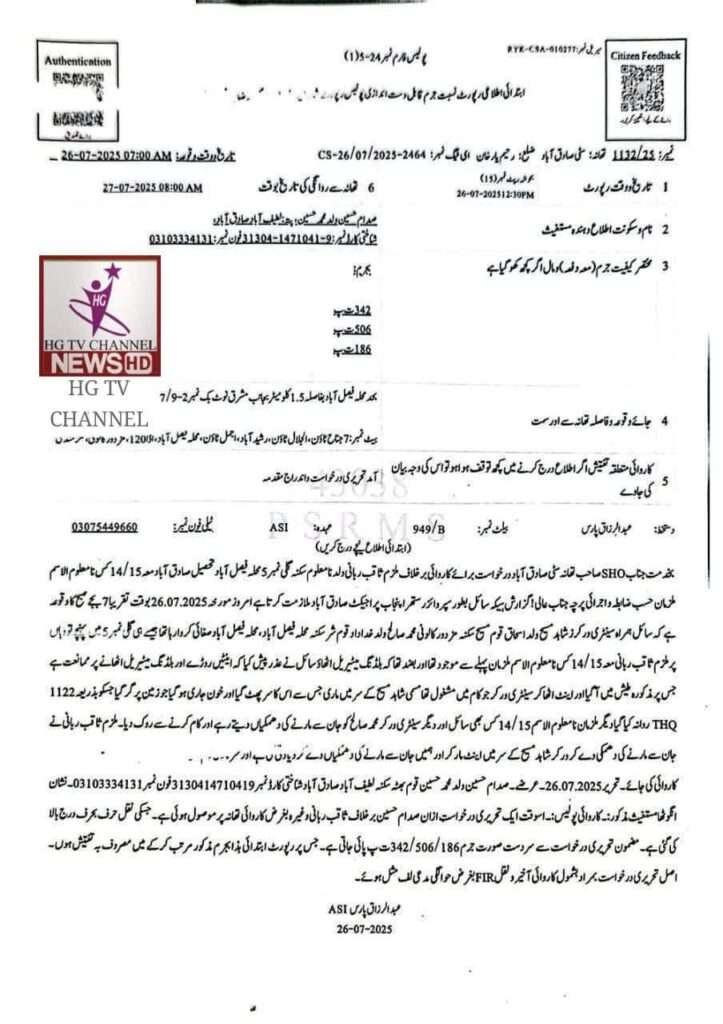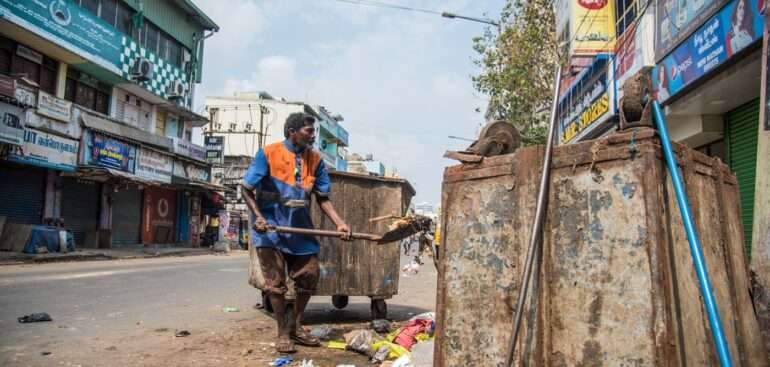In the dusty lanes of Sadiqabad, a silent wound has reopened—a wound etched deep into the soul of Pakistan’s Christian sanitation workers. On a sweltering August afternoon, that wound bled again. A Christian man, barely surviving on his daily labor, was struck with a brick to the head, not for wrongdoing, but for daring to say no.
He was simply doing his job—cleaning the filth of a city that barely sees him as human—when he was asked to remove personal trash from an influential local’s property. When he refused, insisting it wasn’t part of his duty, the retaliation was swift and brutal. His blood ran into the same streets he had helped keep clean.
Now, he lies in critical condition in a local hospital, fighting for his life while the country wrestles once again with its conscience—or perhaps, its silence.
This is not just one man’s tragedy. This is a mirror held up to the nation.
For the Christian community of Sadiqabad, especially the sanitation workers of Suthra Punjab, the attack is a cruel reminder that their lives are still seen as expendable. Within hours, their brooms and buckets were laid down. Streets were left uncleaned. Instead, the workers gathered shoulder to shoulder in a peaceful sit-in protest, not just for their injured colleague, but for the generations of humiliation, degradation, and silence they’ve endured.
“Our community has been cleaning this city for generations,” said one elderly worker, eyes heavy with exhaustion and sorrow. “But we are treated like garbage. When we speak, they shut us up with bricks and threats.”
These are not empty words. According to LEAD Ministries Pakistan, the Christian advocacy group supporting the victim, incidents like this happen with chilling regularity. But most never make it to headlines or police records. Many remain buried, like the pain in the hearts of those who suffer them.
In Pakistan, the sanitation workforce—largely drawn from the Christian minority—is stuck in an unending cycle of systemic abuse. These workers crawl through sewage, sweep away disease, and breathe in rot. Yet, instead of gratitude, they are met with slurs, suspicion, and now, violence.
They clean. We look away.
Even the law has often failed them. With no job security, meager pay, and little to no legal protections, their voices are barely audible in a society skewed by power and privilege. In Sadiqabad, many fear that justice, too, will be quietly swept away.

Though a First Information Report (FIR No. 1132/25) has been registered and police have assured accountability, past experiences have left the community wary. Justice, when it comes to the poor, is often slow, and sometimes, it never comes at all.
Sardar Mushtaq Gill, Founder of LEAD Ministries, was blunt in his demand: “The government must act—not with promises, but with prosecutions. No more speeches. No more delays. Our people are dying.”
Until that justice arrives, the protest continues. The workers of Suthra Punjab have vowed not to pick up their tools until their brother is heard, not just by police, but by the whole country.
And as they sit under the blazing sun, holding banners instead of brooms, they ask the nation one question—how long must we clean your filth before you see our humanity?
In this moment of anguish, they have chosen peace. But beneath the silence of their protest is a scream the nation cannot afford to ignore. For in their suffering lies a deeper truth: the measure of a country is not in how it treats the powerful, but in how it protects the powerless.
